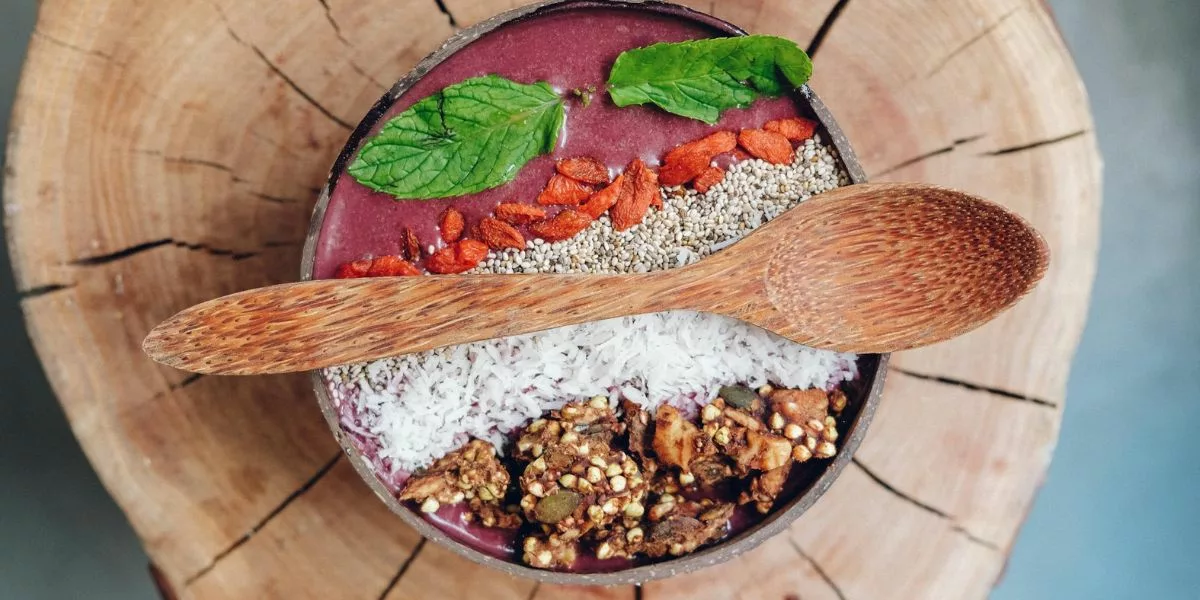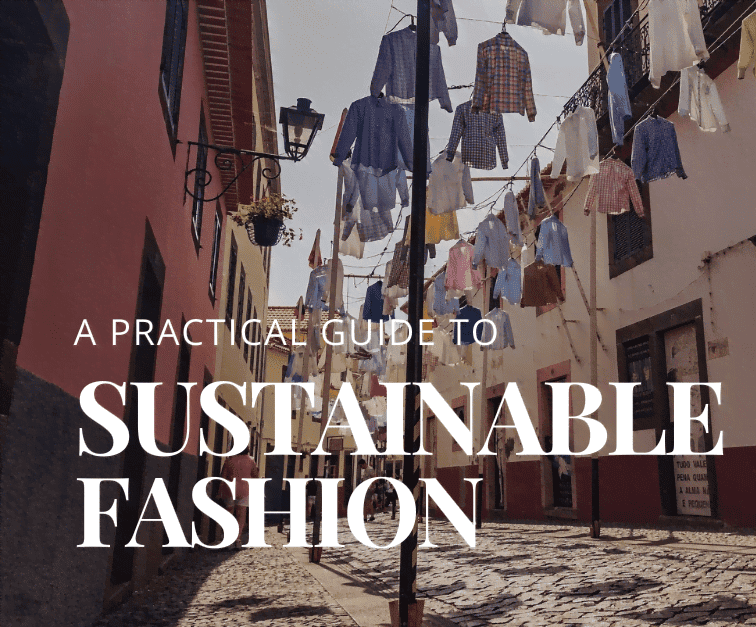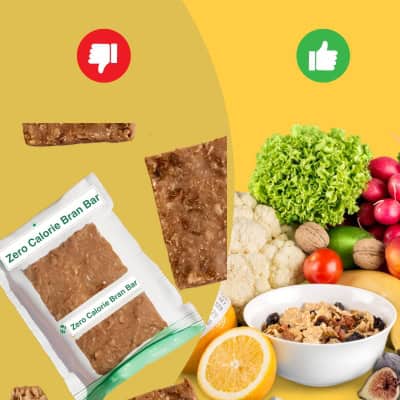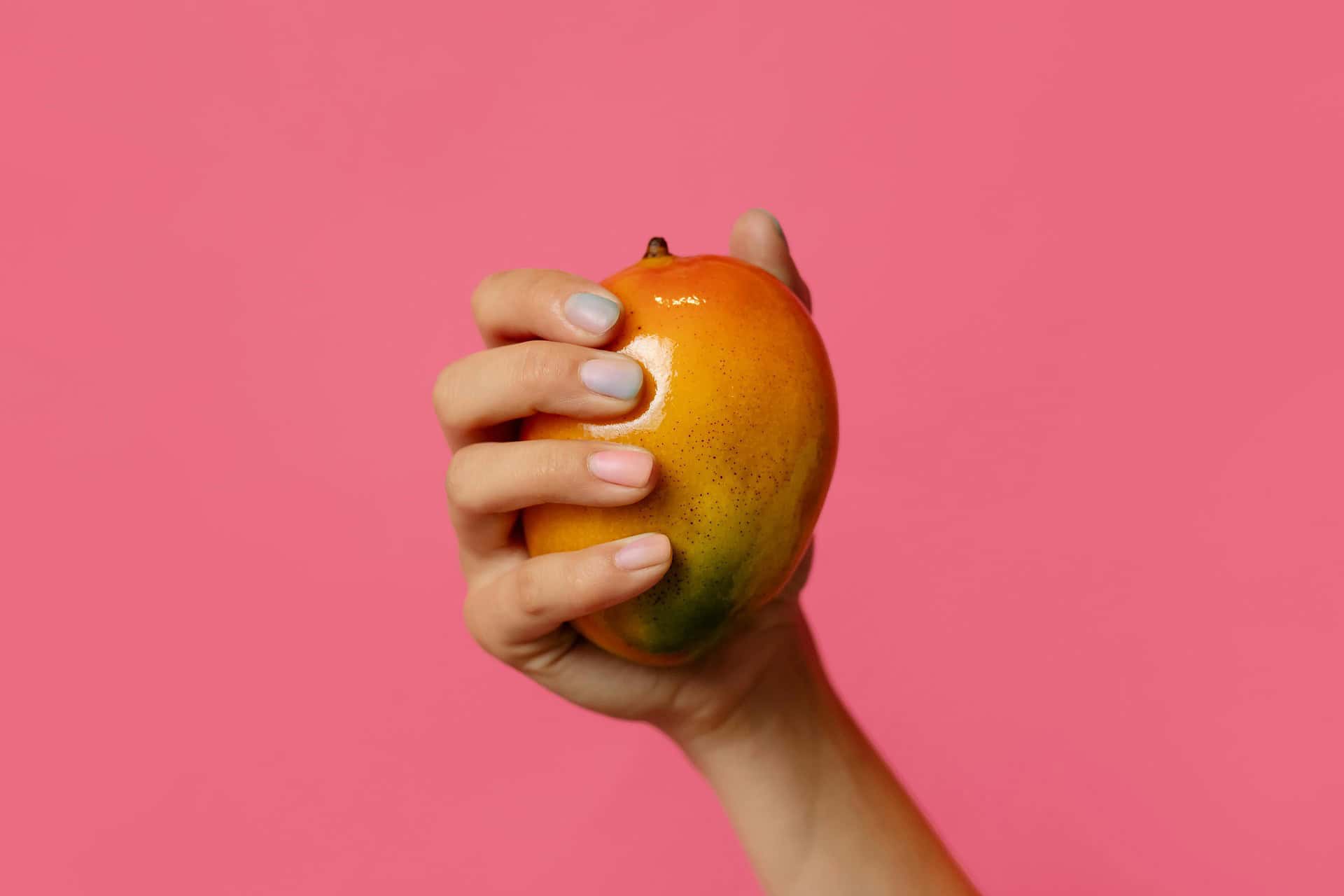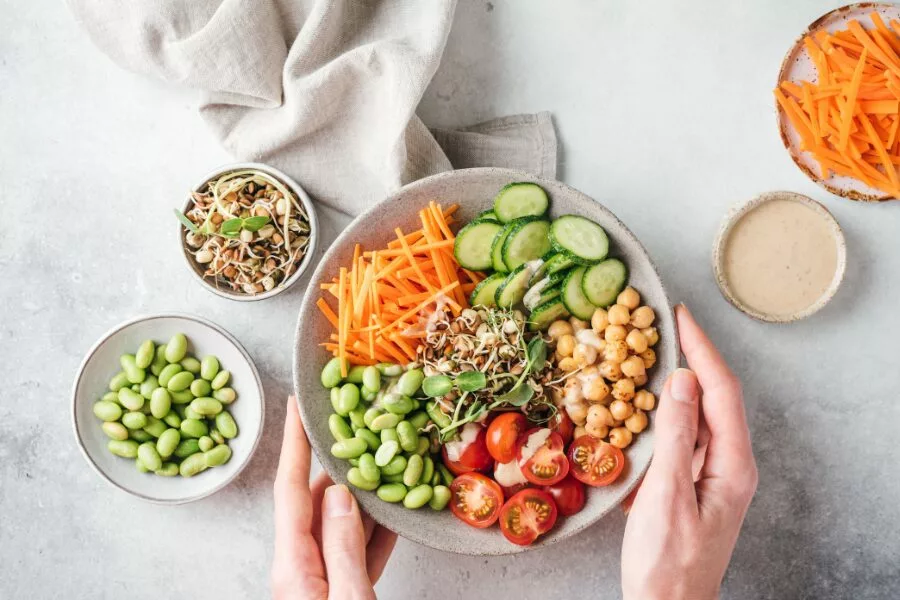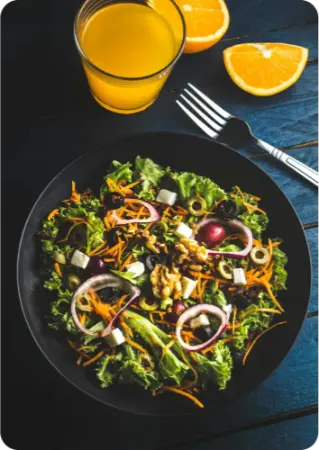Last Updated on September 30, 2024 by Our Editors
Given the commitment to being healthier and combating obesity, depression, and cardiac arrests, we have developed an aversion to fats. However, fats are essential for your health.
But they do not always need to come from junk food dripping with oil. Essential fats and fatty acids are abundant in foods like avocado, nuts, and animal protein like fish and whole eggs.
One such essential fat is the omega-3 fatty acid. Known to defeat inflammation, depression, and anxiety, omega-3 fatty acids are mainly found in fatty fish like salmon and tuna, and also in fish oil.
However, if you have taken a turn and adopted a vegan lifestyle, you might be feeling low about missing out on omega-3 benefits, as this fatty acid is found mainly in animal-derived diet options. Before you silently curse veganism under your breath, give this a read—you do not have to miss anything if you are vegan or vegetarian. And so is the case with Omega-3. Curious about how to begin your vegan journey? Check out our article on the Veganuary Challenge! Explore the best vegan omega-3-rich superfoods.
Make sure you stock up on these essentials to derive the benefits of this good fat. After all, why should meat lovers have all the fun?
Let’s Understand Omega-3!
Omega-3s are a family of unsaturated fats that are good for the health of your skin, hair, and nails and help reduce the risk of cancer, dementia, and heart disease. The human body cannot produce these life-saving good fats on its own. This is why our main source of Omega-3 fatty acids is our diet.
These fatty acids are of three types, namely, ALA (alpha-linolenic acid), DHA (docosahexaenoic acid), and EPA (eicosapentaenoic acid).
Out of these three, ALA is the most common Omega-3 fatty acid and is mostly found in plants. DHA and EPA are found in fish oil, fatty fish, meat, and dairy products. While ALA is common, it is DHA that is the most important Omega-3 fatty acid that your body needs.
Omega-3 in Plant-Based Diets: Is It Possible?
Absolutely, YES.
Aw, we do see our vegetarian and vegan-only readers with a long face, but here is a bit of good news. Those who do not consume animal products can also reap the benefits of DHA and EPA through vegan microalgal supplements. And you can always pack up on that AHA with vegan Omega-3 rich foods on your plate.
7 Best Options For Vegan Omega-3 Rich Superfoods
Now, let’s talk about adding the best vegan omega-3 rich superfoods to your diet. Most of these options in the list will supply you with ample AHA. To avail the benefits of DHA and EPA, vegans and vegetarians can consume vegan EPA/DHA supplements.
1. Chia Seeds
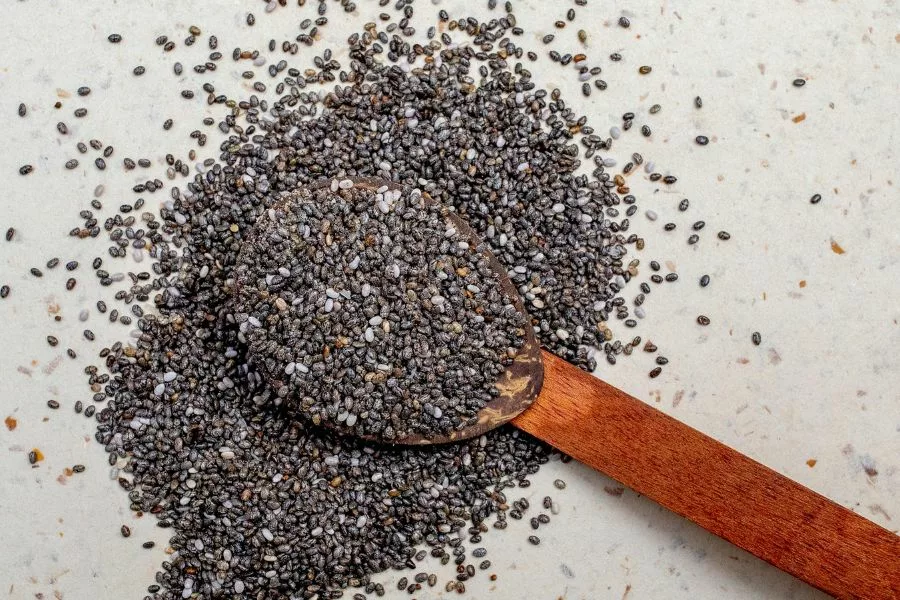
These little seeds are worth the hype they’re getting nowadays. Chia seeds are packed with fiber and a great source of essential minerals like calcium, magnesium, and phosphorus.
Known to keep obesity away, an ounce of chia seeds every morning can help you fulfill your requirement of omega-3 fatty acids.
Chia seeds are a favorite among vegans whenever they make scrumptious puddings. A spoonful of these little guys can help you beat triglycerides and can reduce blood sugar, according to a 2017 medical study.
While there are more studies to be conducted to determine the full extent of the benefits of consuming chia seeds, a small amount can deliver 5,000 mg of your daily omega-3 intake.
There are many reasons to have this ALA-rich vegetarian omega-3 supplement in your diet. Be it substituting eggs with chia seeds in your baking attempts or consuming it just like that after soaking them overnight, these protein packets are going to keep you topped on omega-3 fatty acids.
2. Walnuts

As if there weren’t any more reasons to go nuts about this brain-shaped superfood, here is one more.
Walnuts are one of the most famous sources of vegan omega-3 and are loaded with ALA. With a higher antioxidant content, walnuts are one of the most nutritionally rich nuts out there.
Make sure you include a generous serving of walnuts in your diet to reap the benefits it offers. Having a 28 gram serving of walnuts each day can supply you with an ample dose of ALA (2.5 grams).
The ALA content in walnuts is known for reducing the risk of heart disease by 10%, according to some medical research studies. Like chia seeds, walnuts happen to be an excellent source of magnesium and polyphenols like ellagitannins that are good for your gut.
3. Flax Seeds

The ever fantastic flax seeds feature in our list of the topmost vegan omega-3 supplements that can boost the nutritional value of your diet. Flax seeds can deliver more than double of your daily ALA requirement with a mere tablespoon!
Aside from the seeds themselves, you can also go for some ALA-rich flaxseed oil to avail the benefits of this excellent source of plant-based omega-3. Flax seeds also improve hair health because of their high Vitamin E and A content.
Apart from keeping cardiovascular troubles at bay, this vegan omega-3 source brims with other advantages, such as reducing the risk of lung disease and preventing breast and prostate cancer. It is because flax seeds are abundant in lignans and amino acids. Along with omega-3 fatty acids, these compounds and antioxidants help in lowering blood pressure and preventing the spread of tumors. While the effects of this miracle worker need more research, flax seeds are an established source to derive your daily quota of ALA omega-3 fatty acids. You can have flax seeds in the form of a powder or use them in other recipes like breads, smoothies, salads, or desserts.
4. Brussel Sprouts
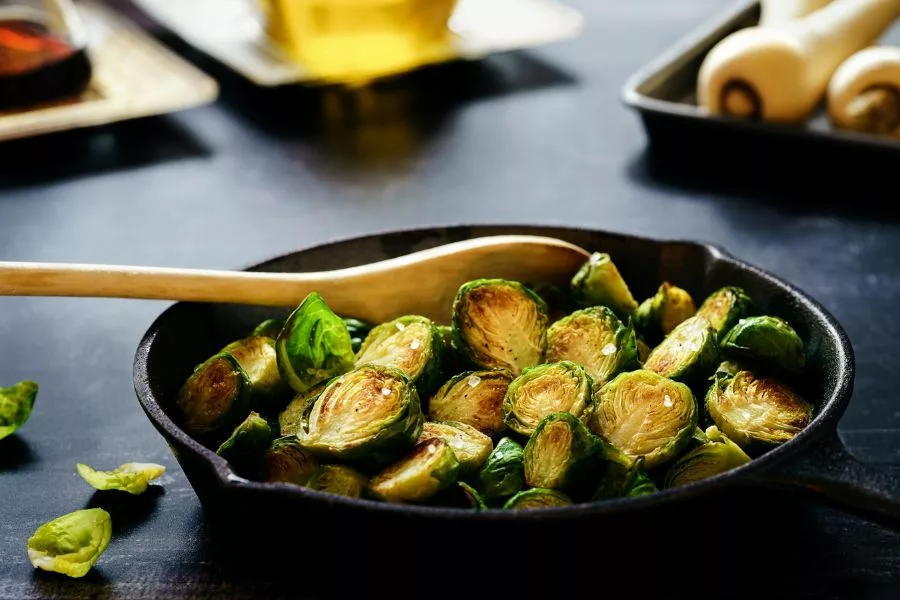
These little ones bear a stark resemblance to cabbages and apart from being oh-so-cute, Brussels sprouts can deliver a significant punch of ALA.
If included as a regular in your diet, this cruciferous veggie can nourish you with up to 50-70 grams of ALA along with Vitamin K, Vitamin C, and carotenoids.
Trust this omega-3 abundant vegetable as something you cannot go wrong with. Steam it, shave it, or roast it with some garlic and butter—Brussel sprouts can be incorporated as a star ingredient in your soups, salads, or main course dishes.
Brussel sprouts are one of the key vegetarian sources of omega-3 fatty acids and can reduce the risk of heart attack by 16%.
5. Edamame and Kidney Beans
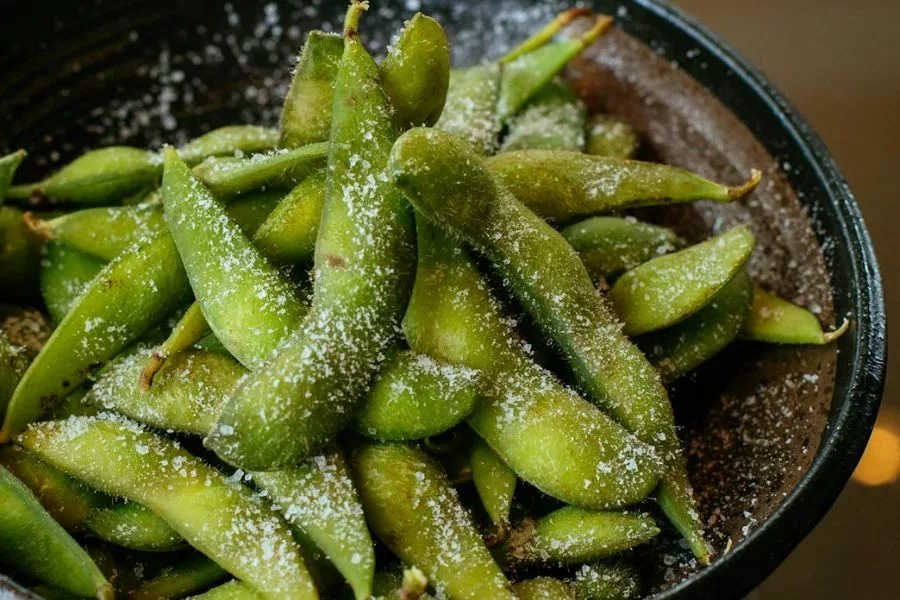
These green beans can work wonders for your omega-3 intake. Rich in essential nutrients like proteins and fiber, a single serving of edamame can perk up your salad bowls, curries, and other dishes with a huge dose of Omega-3 fatty acids.
For every cup weighing over 155 grams, edamame can deliver 0.55 grams of ALA.
Edamame is a good source of nutrition, especially for soy-lovers. However, people allergic to soy protein should avoid Edamame and can go for kidney beans instead. Kidney beans are also a great source of Omega-3 fatty acids.
If you’re going for kidney beans, popularly known as Rajma, make sure you pack up at least half a cup in your dietary routine. Kidney beans are a rich source of proteins, and like edamame, they are abundant in folate, iron and fiber.,
6. Tofu

Another favorite in this list of superfoods—tofu is a great source of vegan/vegetarian omega-3. Currently, firm tofu is also available with the added goodness of DHA Omega-3 fatty acids. You can check out here, what we are talking about.
You can binge on this vegetarian delight in the form of snacks, curries, and even desserts. Try this scrumptious lasagna recipe listed by PETA and give a tasty twist to bean curd!
A 4-ounce serving of this vegan staple can provide you with as much as 360 mg of ALA fatty acids. Team up Tofu with some succulent leafy greens to aid your iron and calcium requirements aside from topping your Omega-3 levels.
7. Canola Oil

Canola oil is not just popular for being the best cooking oil out there. This plant-based omega-3 supplement contains 1.28 milligrams of the essential fat. Canola happens to be a nutritionally rich source of vegetarian omega-3. It doesn’t have an overpowering flavor and is rich in Vitamin K and Vitamin E.
Canola also aids in improving heart health and even helps your hair regain its shine and volume. Boasting an impressive profile, this wonder oil can also reduce aging to some extent and protect cell membranes due to the Vitamin E present in it.
Are Vegan Omega-3 Supplements As Good As Fish Oil And Other Animal-Based Omega-3 Foods?

If you’re worried about whether vegetarian Omega-3 sources will be able to function as well as other EPA and DHA-rich animal fats, chin up. Consuming plant-based sources of omega-3 fatty acids is in no way lacking in nutrition profile. And these diets can be delicious too, while being good for the planet and your health. You can always turn a new leaf (hope the pun is not going unnoticed) and even try turning vegan for a month before you dive in—taking inspiration from the Veganuary challenge!
In fact, eating fish can provide only a limited amount of omega-3. The majority of calories in fish are attributed to saturated fats. Fish also come with a cholesterol alert that can increase the risk of heart disease significantly.
According to a European Prospective Investigation into Cancer and Nutrition (EPIC) Study, it was found that women who followed a vegan diet possessed more long-chain fatty acids as compared to their non-vegetarian counterparts. People who are vegans or vegetarians get a sufficient amount of omega-3 fatty acids from their diet.
Also, physicians have repeatedly emphasized how a vegan diet can be more beneficial in the long-run, especially with respect to longevity, brain health, and a healthy heart. Since vegetarian sources are protein-rich and provide essential fats and fibers, they are good to go for.
In case you’re still skeptical about whether your vegan diet is lacking in EPA and DHA, you can always consult your physician and take vegan supplements for the same. A recurrent myth related to EPA and DHA is that they are only found in fish oil, which is not true.
Algal oil and seaweed can also provide you with these prized fatty acids since fish do not generate DHA and EPA on their own. This makes the case for vegan omega-3 stronger, if anything. You can go for vegan supplements by WOW Skin Science, Potent Veda, or Freshfields’ DHA supplement that will cover all your needs while catering to your specifications.
What Do We Think of Vegan/Vegetarian Omega 3 Supplements?
There are many misconceptions related to the nutritional viability of vegan and vegetarian diets. These myths are more amplified when it comes to essential fatty acids like omega-3. Our goal is to affirm that vegetarian and vegan diets are abundant in the aforementioned essential fats and are a good way to go about adopting an environmentally friendly, sustainable lifestyle.
However, we would always tell our readers to consult their physicians for more information before they take a conscious decision to adopt vegan dietary practices. Moreover, our agenda is to make allies through their own volition, and a commitment to environmentally ethical practices that is not disguised as a mere fad to follow and then discard.
Summing Up!
Our perspective on vegan omega-3 sources is shaped by credible medical studies and a deep commitment to promoting more ethical and sustainable food choices. We believe that prioritizing plant-based nutrition is not only a responsible way to care for the environment but also a thoughtful approach to personal well-being. Incorporating vegan omega-3s, such as those derived from algae, flaxseeds, and chia seeds, provides the essential fatty acids necessary for heart and brain health without relying on animal-derived sources.
For us, going green and clean is the way forward. While transitioning to these diet practices may seem challenging, it’s important to remember that you are not sacrificing your health by choosing this path. In fact, you are enhancing it by opting for sources that offer similar benefits without the ethical and environmental concerns linked to fish-based omega-3s.
To learning more together, we hope you continue your journey towards sustainability with Ecowiser!
Frequently Asked Questions (FAQs)
1. What are the best vegan sources of Omega-3?
Some of the top vegan Omega-3 superfoods include chia seeds, flax seeds, walnuts, Brussels sprouts, and edamame. These are rich in ALA, a type of Omega-3 fatty acid essential for heart and brain health.
2. Can vegans get enough Omega-3 without supplements?
Yes, vegans can get sufficient Omega-3, primarily ALA, through plant-based foods like flax seeds, chia seeds, walnuts, and certain vegetables. For EPA and DHA, they can consider algal oil supplements.
3. What is the difference between ALA, DHA, and EPA in Omega-3?
ALA is the plant-based form of Omega-3, found in vegan foods. DHA and EPA, which are more bioavailable and important for brain and heart health, are typically found in fish but can be sourced from algae in vegan diets.
4. How much Omega-3 do I need daily on a vegan diet?
The recommended daily intake varies, but generally, adults need around 1.1 to 1.6 grams of Omega-3 (ALA) per day. Foods like chia seeds, flax seeds, and walnuts can help meet this requirement.
5. Are vegan Omega-3 supplements as effective as fish oil?
Yes, vegan Omega-3 supplements derived from algal oil can provide EPA and DHA, the same essential fatty acids found in fish oil, without relying on animal sources. These are equally effective for meeting your Omega-3 needs.

